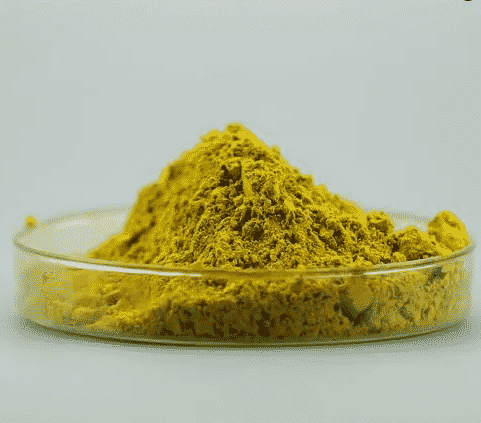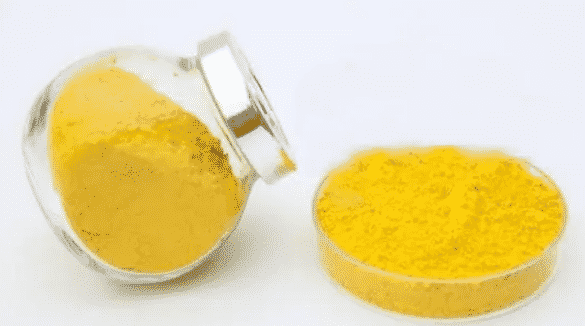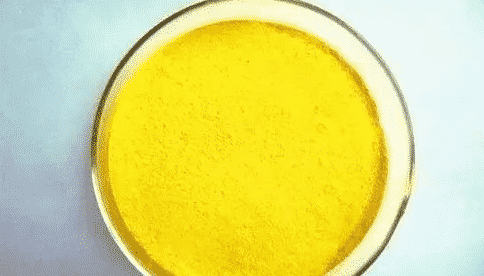Berberine Hcl Powder
What is Berberine Hcl Powder?

Berberine hydrochloride (BER), also known as berberine,It belongs to isoquinoline alkaloids of primary Coptis
It is an effective chemical component extracted from the rhizomes of Coptis chinensis and Coptis Trifolium. It also exists in Phellodendron, three needles, Funiu flower, Chelidonium, Nantian bamboo or other plants containing berberine.
Berberine hydrochloride has the effects of clearing away heat and dampness, purging fire and detoxifying.
It was initially used in clinic as a heat clearing and detoxifying drug and antibacterial drug. It has strong antibacterial ability and wide antibacterial spectrum, and has certain inhibitory effects on dysentery bacilli, tuberculosis bacilli, pertussis bacilli, Diplococcus pneumoniae and Staphylococcus aureus
What is the pharmacological action of berberine hydrochloride

The pharmacological action and clinical application of berberine hydrochloride have been studied at home and abroad. Pharmacological prescription Berberine hydrochloride can inhibit the proliferation of cancer cells, induce apoptosis of cancer cell lines, and has the effects of anti arrhythmia, anti heart failure, anti hypertension, protecting damaged cardiomyocytes, reducing blood lipid, reducing blood glucose and antagonizing calcium channels.
Clinical application: berberine hydrochloride can be used to prevent and treat colon cancer, renal adenocarcinoma and breast cancer Cancer, lung adenocarcinoma and other cancers; It can also be used for cardiovascular diseases such as heart failure, arrhythmia and hypertension;
And for the treatment of gastritis, gastrointestinal ulcer, bacterial dysentery and other digestive system diseases. In addition, due to hydrochloric acid Berberine has a certain hypoglycemic effect, and its side effects are small, safe and convenient, so it is also used in the treatment of diabetes Cure
What can berberine hydrochloride do Berberine Hcl Powder

Berberine hydrochloride is the main effective substance in Coptis chinensis, also known as berberine. Berberine exists in Coptis chinensis in the form of hydrochloride, and its content is as high as 10%.
It is an isoquinoline alkaloid. In the past, berberine hydrochloride was mainly used in clinical diseases such as intestinal infection and bacillary dysentery. With the in-depth development of its research, it was found that berberine hydrochloride also has certain clinical significance in the treatment of other digestive system diseases.
What is the antibacterial effect of berberine hydrochloride Berberine Hcl Powder
Berberine hydrochloride is usually used orally to treat mild intestinal infection. The chloride of berberine hydrochloride can effectively inhibit Staphylococcus aureus and Enterococcus faecalis.
Berberine Hcl Powder Berberine hydrochloride also has strong inhibitory effect on Shigella dysentery and Salmonella, and can be used in the treatment of bacterial dysentery. Helicobacter pylori (HP) infection is the main cause of peptic ulcer.
It was found that berberine hydrochloride could inhibit the proliferation of HP and reduce the cytotoxicity of HP infection.
Some studies have also shown that by inhibiting the growth and respiration of HP, it can inhibit the oxidative decarboxylation process of glucose and its metabolic intermediate pyruvate, reduce the number of pili and the adhesion ability of bacteria on cells, so as to kill bacteria
What is the relationship and effect between berberine hydrochloride and ulcerative colitis
Ulcerative colitis (UC) is a recurrent chronic nonspecific inflammatory bowel disease with unknown pathogenesis.
Some articles have shown that berberine hydrochloride can increase intestinal beneficial bacteria, such as blautia and allobaculum. These bacteria have the function of producing short chain fatty acids (SCFA), and SCFA can regulate intestinal pH, anti-inflammatory, human metabolism and immunity
What is the relationship between berberine hydrochloride and nonalcoholic fatty liver
Nonalcoholic fatty liver disease (NAFLD) is a clinicopathological syndrome characterized by fat accumulation in hepatocytes
Studies have shown that although the mechanism of NAFLD is not clear, it is mainly related to insulin resistance, oxidative stress, inflammatory imbalance and lipid metabolism disorder
What is the effect of berberine hydrochloride on digestive system tumors of Berberine Hcl Powder
The incidence rate of digestive system tumors is high in China.
Surgical treatment is the main treatment for tumors. The research center in recent years shows that berberine hydrochloride has a positive clinical significance in the prevention and treatment of digestive system tumors.
What is the effect of berberine hydrochloride on liver cancer of Berberine Hcl Powder
Berberine has inhibited HCC cell growth in vitro, in vivo experiments and clinical trials, and its inhibition mechanisms are also diverse, among which are the activity of nuclear factor- κB-inhibition (NF-B) and its pathways, induction of apoptosis, anti-oxidation, inhibition of cell proliferation, and induction of autophagic death in cancer cells
What is the effect of berberine hydrochloride on gastric cancer of Berberine Hcl Powder
It has been shown that berberine can promote BGC-803 differentiation in gastric cancer cells
After different concentrations of berberine acted on human gastric cancer BGC-823 cells cultured in vitro, berberine was found to inhibit the proliferation of human gastric cancer cells in vitro and to induce apoptosis in gastric cancer BGC-823 cells
Its inhibitory mechanism may be related in the promotion of apoptosis.The study by Zhang Qiang [12] et al showed that berberine can dose-dependent increase the expression levels of landmark autophagy proteins LC3-Ⅱ and Beclin-1 in tumor tissues, thus exert anti-gastric cancer effects by inducing cytoinhibitory autophagy
What is the effect of berberine hydrochloride on colon cancer of Berberine Hcl Powder
Berberinergic activity significantly inhibited HCT-8 cell proliferation in human colon cancer.The mechanism may be the regulation of tumor suppressor genes by death receptor and mitochondrial pathway-mediated apoptosis that regulates gene expression, thereby disrupting the normal structure of tumor cells
Berberine is able to bind to the KRAS promoter G-tetrstrand DNA and maintain the stability of its parallel configuration, and berberine may inhibit the appreciation of colon cancer cells by downregulating the SW620 cell KRAS gene transcription through the G-tetrand structure of the KRAS promoter
What is the effect of berberine hydrochloride on gallbladder cancer of Berberine Hcl Powder
Chronic cholecystitis is a chronic inflammatory response disease, mostly caused by chronic bacterial infection, chemical damage, stone stimulation, repeated attacks of acute cholecystitis.Berberine is the main active ingredient in yellow.
In addition to the well-known antibacterial effect, berberine has anti-platelet aggregation, which can improve the blood supply of the gallbladder mucosa
Previous studies have found that TNF-α levels are significantly higher in the serum of patients with chronic cholecystitis compared with healthy volunteers, which were significantly reduced after anti-inflammatory treatment
However, LEP is able to regulate the inflammatory response and oxidative stress response of the body, and can activate the NF-κB pathway to participate in the inflammatory response
